Real-life accounts of what it’s like to be “smuggled like drugs” across Europe
Belgrade, Serbia


Belgrade, Serbia
“They smuggle us like drugs,” says Yassir, a 23-year-old Afghan. “And if we don’t do what they say, they threaten to tie us to a tree and leave us in the forest.”
Europe’s human trafficking trade is thriving, thanks to a recent deal between the EU and Turkey that has empowered EU authorities to deport asylum-seekers more easily. Significant profits await the organized crime networks that restructure their businesses to serve illegal migration routes—in Belgrade alone, about 500 people gather every day in parks near the central train station, to meet smugglers shilling trips to Hungary and beyond. “Ticket” prices range from 300 to 3,500 euros per person.
Yassir, who requested a pseudonym for his own safety, is a pharmaceutical engineering student. He has tried to cross the rural Serbia-Hungarian border 14 times, and is preparing for his fifteenth, but tells Quartz that he is sick of dealing with smugglers and new requests for payment at every turn. “They have people everywhere,” he says. “There are networks in every country and everyone takes a percentage.”
It costs up to 300 euros to be led to a hole in the Serbia-Hungary border fence, which you must cross unescorted, he says. More secure car trips to Budapest or Vienna cost between 1000-1800 euros, while a spot in the back of a truck to Germany or Italy sells for 2000-3500 euros.
“They told me they ask for so much money because they have to give it to the police,” Yassir says.
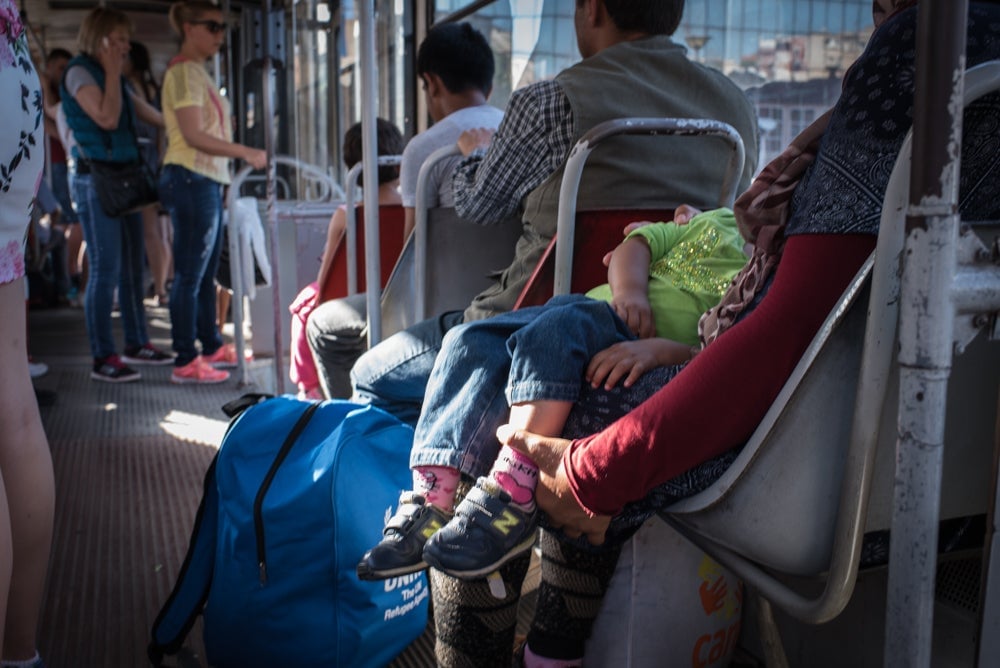
How it works
Most asylum-seekers travel without cash for fear of robbery. Smuggling services are usually paid by family members back home to a middleman in that same area. Once the middleman gets the cash, he calls the smuggler in Serbia to confirm the transaction, and the voyage begins.
If the trip involves crossing multiple borders, a migrant’s family has the option of paying installments, says Yassir. Payments are made to the middleman only after he receives confirmation that the person in transit has arrived in a new country. This is repeated along the Balkan route, a gauntlet of several countries beginning in Greece or Bulgaria, then passing through Macedonia, Serbia, Hungary and Austria that ends in Germany or Italy, until the asylum-seeker reaches their destination.
Yassir says he prefers this method, instead of dealing directly with smugglers in the street. At the beginning of his journey in Nov. 2015, Yassir was robbed of 5000 euros in Istanbul, by men who told him he was buying direct passage to France.
“They bought me drinks, they gave me food and told me things like ‘I’m not a bad person like the others, I am trying to solve your problems,” says Yassir. “Then, when I gave them the money, they disappeared.”
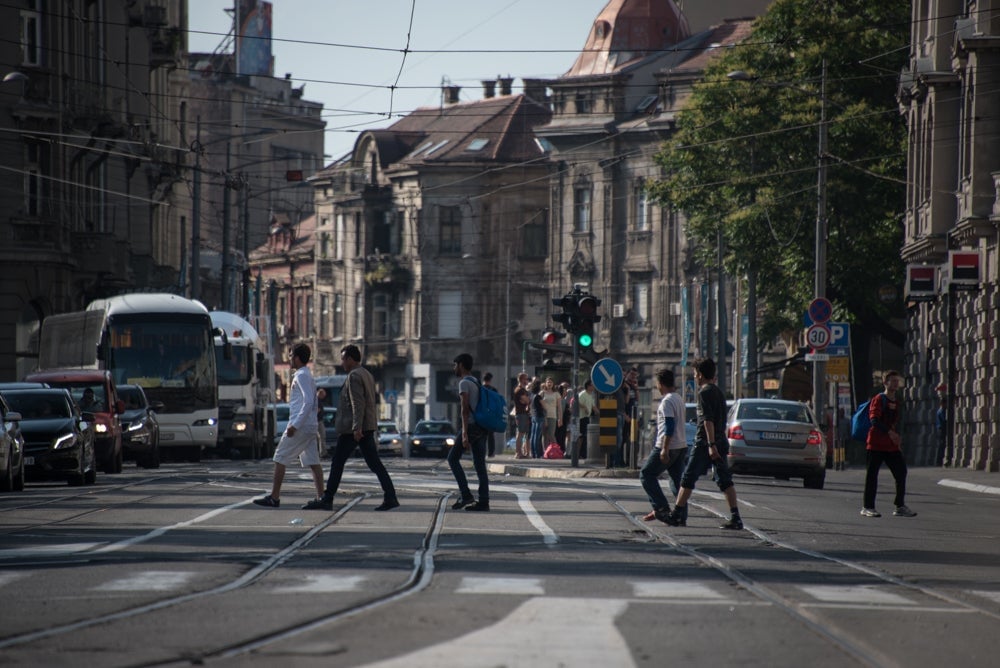
Yassir’s account has been echoed by other asylum-seekers attempting the same routes, and by humanitarian workers in Belgrade. Djordje Kostić, a volunteer in the city’s Miksalište community center for refugees, adds that some border crossing strategies can be even simpler.
“Sometimes smugglers put refugees in a big SUV and then they smash this SUV through the border fence and tell the refugees to run,” Kostić says.
Migrants without enough money to hire a smuggler can also hire local taxi drivers to take them as far as the border fence, and attempt a crossing on their own. This has often proven unsuccessful, however, due to a heavy presence of Hungarian border police in the best-known crossing areas.
With each failure, asylum-seekers return to Belgrade to plan their next attempt. The one certainty is that few want to remain in Serbia, a country still grappling with its own violent past and political corruption.
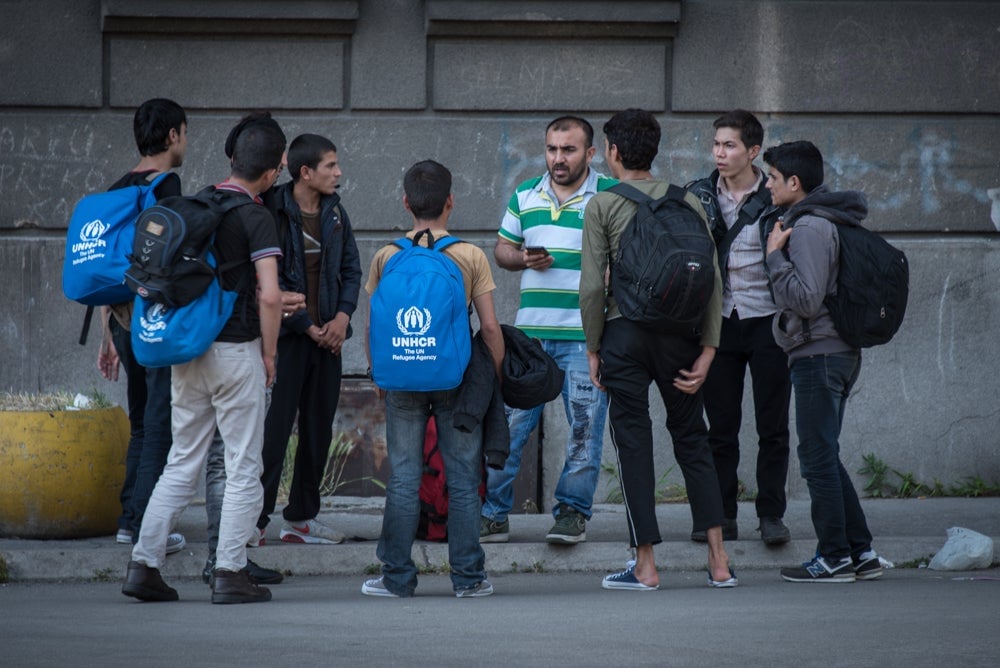
Walking across Europe
Between runs at the border, most migrants sleep in a government-run camp outside the city center. During the day, Serbian police look on as groups openly congregate around smugglers, and families pack their bags into rusty Soviet hatchbacks bound for Hungary.
Since last fall, various community groups and NGOs have been providing humanitarian aid to people passing through Belgrade. A local collective called Info Park distributes tea, soup, and, well, information in one of the city parks, all while taking care to avoid association with human traffickers—which they say are easy to spot, because smugglers tend to wear camouflage pants.
Handing out tea from a small hut crammed with instant soup boxes, Info Park volunteer Branislava Djonin pointed out not all migrants in Belgrade’s parks are looking for smugglers. Many are simply broke, and traveling cross-country on foot.
“Anyone who’s worked with refugees knows that closed borders or the lack of money is not going to stop them,” says Djonin.
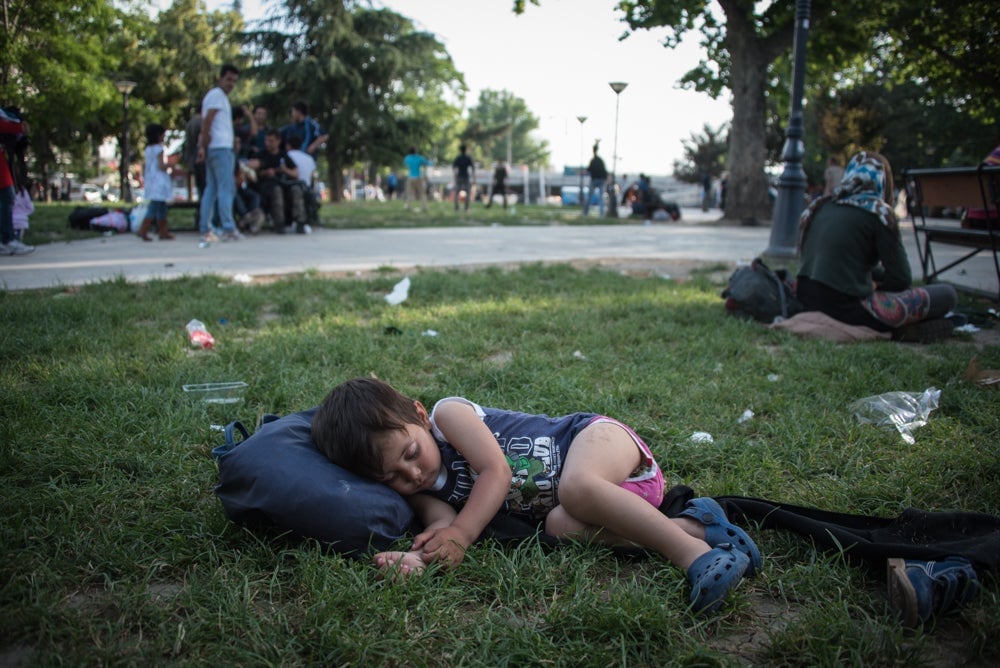
Serbia’s southern borders with Macedonia and Bulgaria have proven particularly difficult to fence off or patrol for hikers. One man in the park, a 30-year-old electrical engineer from Kashmir named Murdaza Sodozai, tells Quartz that he walked across Macedonia in 12 days.
Starting from a massive (now-closed) refugee camp in the Greecek border town of Idomeni, Sodozai used his phone’s GPS to hike across the entire country before arriving in Presevo, Serbia, where he took a bus to Belgrade. “Smugglers take a lot of money. I don’t have money anymore,” Sodozai says in a matter of fact way, sipping Info Park’s instant soup.
Sunny Abdulmaye and Mohammed Zeeshan, two Pakistanis from Karachi, also told Quartz that they made it to Belgrade with a budget of zero. From Turkey, they built their own wooden boat to cross the Aegean sea with five other people. From Idomeni, they too walked across Macedonia.
All three say they plan to walk to Italy—rumor holds that asylum documents are easier to obtain there than anywhere else. “My friends said getting papers is a joke there,” Sodozai says.
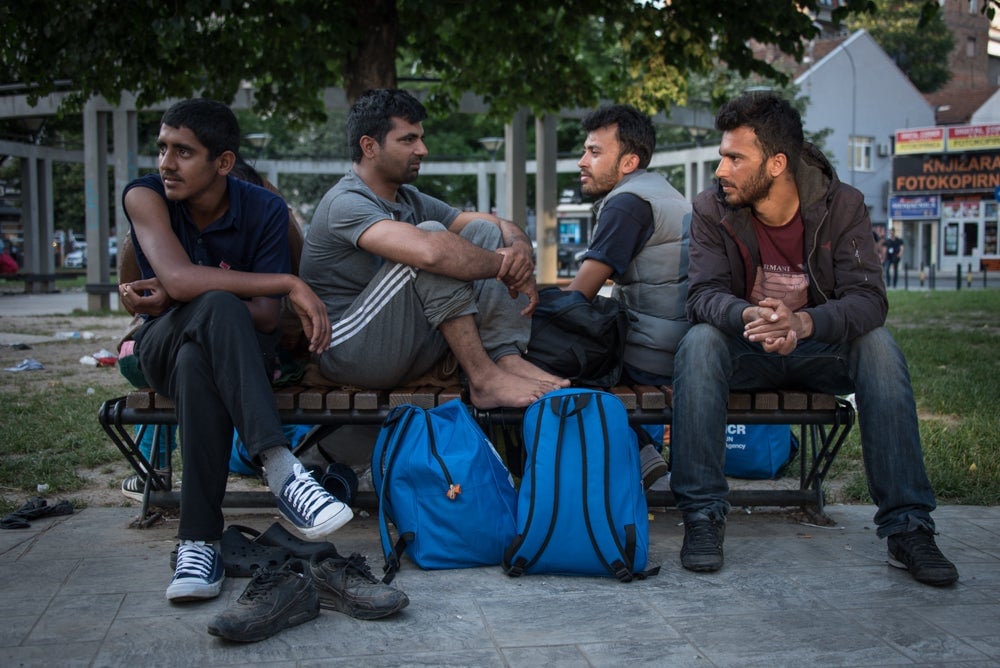
Making money from despair
Of course, there are legal ways to move through Europe, but travelers like Sodoai, Abdulmaye and Zeeshan would have to obtain visas, which often require proof of money in the bank, as well as travel insurance. For anyone escaping war, crisis or poverty, such conditions can be impossible to fulfill.
Yassir says he understands why Europeans worry about an inundation of foreign refugees, but that their concern would be better directed at the criminal networks profiting from crisis around the world. “This system makes so much money for criminals in Europe, and also in our countries,” says Yassir. “Every one of us wants to do this legally, but it’s not possible, so we do it illegally.”